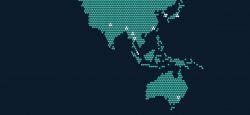Author Archives: Naveed Haq
Author Archives: Naveed Haq

Insights from a comparative study launched today To bring faster, affordable, and resilient connectivity to people, local Internet stakeholders often turn to Internet exchange points (IXPs). They’re a critical digital infrastructure where networks come together to connect and exchange Internet traffic. IXPs help keep domestic Internet traffic local, reducing transit costs, lag time, and providing […]
The post Successful Strategies for Building and Growing IXPs appeared first on Internet Society.

During the COVID-19 pandemic, many have shifted their day-to-day activities to online. To sustain the spike in Internet traffic, fast and affordable Internet service are now more critical than ever.
Yet, Ookla Insights shows that Internet speed in Afghanistan, Nepal, and Sri Lanka has declined since the pandemic. A new Internet Society report, The Impact of the COVID-19 Pandemic on Internet Performance in Afghanistan, Nepal and Sri Lanka, examines the impact of this fall in the performance and quality of Internet services in these countries on online users.
Informed by an online survey, taken by two hundred Internet users – predominantly tech-savvy city dwellers with access to the Internet – the report reveals there is a decline in Internet performance in the three countries. It shows that though the performance decline frustrated online users, more are increasingly spending on high-speed Internet.
The research advocates for governments and Internet Service Providers (ISPs) to take advantage of the situation and accelerate efforts to increase network capacity and reliability to address the performance gaps.
Here are some highlights from The Impact of the COVID-19 Pandemic on Internet Performance in Afghanistan, Nepal and Sri Lanka.
Fall in Internet Performance
Around 50-80% of Continue reading

The Internet Society, in partnership with South Asia Network Operators Group (SANOG) recently concluded a five-week, hands-on training course for entry level network engineers and system administrators from South Asia. The online course Introduction to Network Operations, which took place from June 15 to July 19, prepared professionals to take advantage of the new opportunities the Internet is creating. The training provided practical learning about UNIX/Linux, networking, and the Domain Name System (DNS) to over 40 participants from Research Education Networks (RENs), government institutions, network operators, universities, and private institutions. SANOG subject matter experts Thilina Pathirana from Sri Lanka and Gazi Zehadul Kabir from Bangladesh moderated via Moodle, an e-learning platform.
Skills and Knowledge for Digital Transformation
The course aimed to prepare young engineers for the future. The technical skills and hands-on knowledge enable them to build expertise to advance professionally in their chosen field of network and system administration. The course also served as a common platform for South Asia community members to actively interact, exchange knowledge, and learn from one another.
For participants, the course was a great learning experience. “It was the best online course I had yet,” said Afaq Ahmed from Pakistan. For young engineers Shreekar Continue reading

In July 2020, the Internet Society organized the webinar “How Community Networks are helping during COVID-19.”
We are halfway through this unprecedented year in which COVID-19 continues to cause disruptions and confusion in many areas of our lives. What is clear though, is the recognition of the Internet as a lifeline for us – for communicating with family members and health workers, accessing essential services, and participating in online learning and remote work.
But what about those who don’t have it?
The panel was an opportunity to show that there are solutions out there. To get to them will take strong communities driven by the understanding that everyone can make a difference.
The discussions of July’s webinar got to the heart of this.
The panelists shared stories and videos of the community networks they have helped to build in remote villages where underserved Indigenous tribes live. We heard the story of one Indigenous tribe located in the southern part of West Java in Indonesia, who set up a wireless network for their community. It helped them find jobs and increase their income, as well as access health information, learning resources, and government services.
In India, an Continue reading

The COVID-19 pandemic has proven how important a strong Internet infrastructure is.
Internet exchange points are a vital part of that. They are key to bringing better, faster, and more affordable Internet to people.
Recently, the Asia Pacific Internet Exchange Association (APIX) and the Internet Society did a comprehensive survey to understand the impact of COVID-19 on IXP operations in the region.
IXPs from Japan, Hong Kong, Taiwan, Thailand, Myanmar, Philippines, Singapore, Vietnam, Indonesia, Malaysia, Nepal, and Australia provided data. Here are some of the key findings.
What is an Internet Exchange Point?
If you want to see your neighbor, taking a route that sends you across town and back again is not the quickest or most efficient way to get there. And yet, in many parts of the world, that is what happens with Internet traffic. IXPs help create shorter, more direct routes for Internet traffic.
Read the Explainer
Changes in Internet Traffic
There was a significant increase in Internet exchange traffic, between 7- 40%. Traffic patterns during the pandemic show that there is either no difference left between peak and off-peak time or the peak time has increased from a few to more hours.
The increase is highest Continue reading

In a bid to improve digital accessibility in Pakistan – a country with about 30 million persons with disability (PWDs), according to the World Health Organization – we recently partnered with the Ministry of IT (MoIT) and the National IT Board (NITB) so that more existing government websites could include accessibility features and future websites could incorporate such designs. We set out to make five websites more accessible – as a start – and are already seeing encouraging results.
According to local study and research paper, a majority of websites in Pakistan, including government, are not accessible for PWDs. PWDs face various challenges in using websites based on their impairment.
For example, persons with visual impairments can face compatibility challenges when screen reader software is used to access visual displays that are not labelled or hyperlinks that do not make sense when read out of context. Those with low vision are not able to access websites that cannot be adjusted for font type and size, contrast, and use of colors, and individuals who are deaf are not able to understand the narration in an online video if it is not properly captioned.
As part of this commitment given by Continue reading

This month was even more special for our Internet Governance campaign, with two significant (back-to-back) activities in the Philippines.
Earlier this month, the Philippines’ Department of ICT (DICT) signed a Memorandum of Understanding (MoU) with the Internet Society (ISOC) to facilitate the development of its National ICT Ecosystem Framework (NIEF) 2022. More details can be found here.
The following week, the Internet Society Asia-Pacific team conducted a face-to-face workshop on Internet Governance. The three-day workshop was organized as part of the Asia-Pacific Telecommunity 2018 work plan, and hosted by DICT.
Internet Society staff along with facilitators from the ISOC Philippines Chapter delivered this specially designed training workshop through presentations, Q&A sessions, individual and group activities, interactive quizzes, and a debate.
The majority of attendees were government officials from the Department of ICT, the National Privacy Commission, the National Telecommunications Commission, and the Upper and Lower Houses of Congress, but also included members of the technical community and civil society.
The sessions were highly interactive with participants actively asking questions and presenting their own ideas and arguments. The participant-led group discussions provided an opportunity for local issues to be openly discussed, and possible solutions to be considered.
For us, the workshop Continue reading
Last month in Kathmandu, Nepal, 750 delegates participated in APRICOT 2018 – Asia-Pacific’s largest Internet conference. It was led by Internet Exchange Nepal (npIX) with support from several organizations including the Internet Society (ISOC) Nepal Chapter.
The Internet Society, through its Asia-Pacific Bureau, is a long-term partner of the APRICOT conferences, sponsoring a competitive fellowship programme, as part of the Internet Society’s mission to support capacity building in developing countries. Read more about our fellows at APRICOT 2018:
Team ISOC @ APRICOT 2018 comprised of staff from Regional Bureaus and Internet Technology. This included Andrei Robachevsky, Aftab Siddiqui, Rajnesh Singh, Salam Yamout, and myself.
In line with the Internet Society’s 2018 Action Plan, our core message at APRICOT 2018 was to strengthen the global Internet routing system and mitigate many of the risks facing the Internet’s core today. This includes route hijacking, traffic detouring, and address spoofing – which is a root cause of Distributed Denial of Service (DDOS) attacks. We promoted the Mutually Agreed Norms for Routing Security (MANRS), a set of recommendations addressing these risks, already adopted by some network operators.
Team ISOC took on a wide variety of roles Continue reading
The Asia Pacific Regional Internet Conference on Operational Technologies (APRICOT) is an annual event that brings together Internet engineers and networking experts, government representatives, Internet business leaders, and other interested parties from around the world to learn from training workshops and tutorials, attend technical presentations, discuss policies, and extend social and professional networks with like-minded peers. This year’s event was held in Kathmandu, Nepal from 19-28 February.
The Internet Society Asia-Pacific Bureau has a long-term partnership with APRICOT and proudly sponsors its fellowship program, providing financial support for individuals from developing economies to attend the event, and to contribute to discussions about Internet operations, technologies and development. This year the Internet Society sponsored a total of 13 fellows to APRICOT 2018, split between the technical workshops and the conference week, depending on their areas of interest. 75% of these fellows were females, endorsing our focus to inspire and facilitate the participation of women in the technology sector and to #ShineTheLight!
We had an opportunity to meet some of these fellows, to know more about them and their experience as a fellow.
Athirah Rosli is a Doctoral Researcher at Universiti Utara Malaysia, and also a committee member of the ISOC Malaysia Continue reading